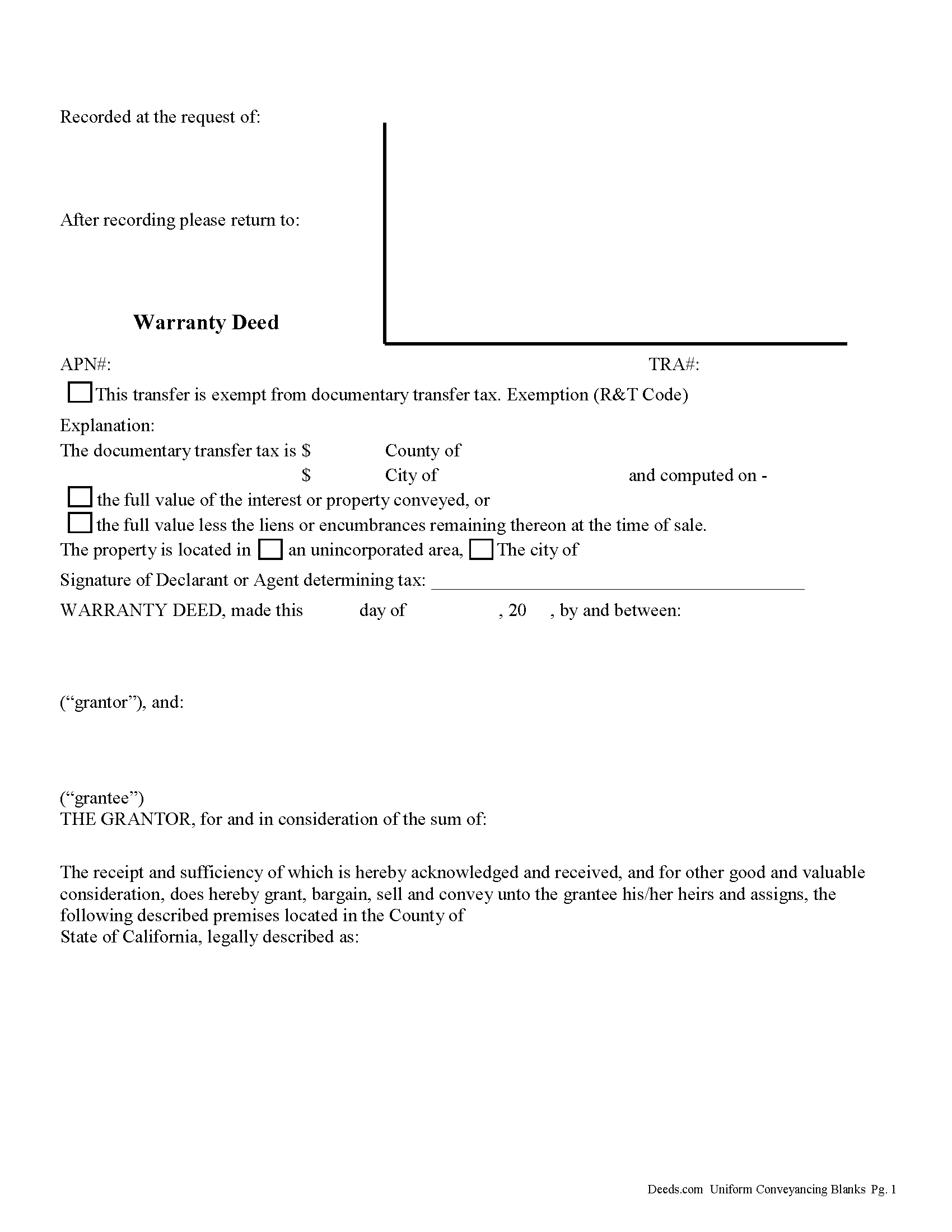Download California Warranty Deed Legal Forms

California Warranty Deed Overview

A transfer of real property in California is an act of the parties, or of the law, by which the title to real property is conveyed from one living person to another (CIV 1039). Transfers of real estate are conducted through the use of standard real estate deeds, such as warranty deeds, which are used often in this state for a conveyance of real property.
The use of the word "grant" in a conveyance by which any estate in fee simple or inheritance is to be passed implies the following covenants, and none other, on the part of the grantor for himself and his heirs to the grantee, his heirs, and assigns, unless they are restrained by specific terms in the deed: (1) That previous to the time of execution of the conveyance, the grantor has not conveyed the same estate, or any right, title, or interest therein to any person other than the grantee and (2) that the estate is, at the time of execution of the conveyance, free from any encumbrances done, made, or suffered by the grantor or by any person claiming under him (CIV 1113). Although the California Statutes do not address it, the grantor in a warranty deed will warrant and defend the title against the claims of all persons.
The grantor to a warranty deed must sign and have his or her signature acknowledged in order for the instrument to be recorded. A California all-purpose acknowledgement is required to be on a document. The officer taking the acknowledgement of an instrument should have a certificate endorsed to the deed (CIV 1188). All warranty deeds in California must be accompanied by a completed Preliminary Change of Ownership Report when submitted for recording.
Instruments that are entitled to be recorded may be recorded in the office of the county clerk in the county where the property is located (CIV 1169). Once a warranty deed has been recorded, it serves as constructive notice of the contents to subsequent purchasers and mortgagees (CIV 1213). Every conveyance of real property is void as against any subsequent purchaser or mortgagee of the same real property, or part thereof, in good faith and for a valuable consideration, whose conveyance is first duly recorded, and as against any judgment affecting the title, unless the conveyance shall have been duly recorded prior to the record of notice of action (CIV 1214). If unrecorded, a warranty deed is valid as between the parties to it and those who have notice of it (CIV 1217).
(California Warranty Deed Package includes form, guidelines, and completed example)